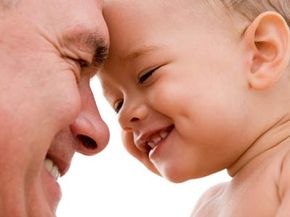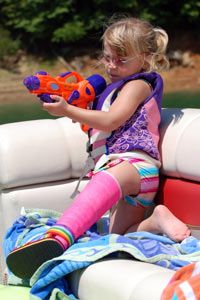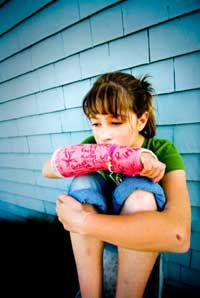When we're young, the world seems ours for the conquering. We're tireless, fast and strong. Our brains are sponges, our senses are sharp and, for the most part, all the biological trains are arriving on time.
As we age, the visage in the mirror peering back at us through bifocals doesn't seem half the world-beater it once was: Skin sags, libidos flag, injuries happen more often and last longer.
Advertisement
Some reward for surviving, right? One of the differences between the young and the not-so-young is the time it takes for broken bones to heal. While a 5-year-old child who breaks a bone might be back to normal in just a few weeks, an adult has to keep the fractured appendage propped up for six to eight weeks [source: FDA].
So why do a child's bones heal faster than an adult's? Clean living? The knowledge that time lost is just playtime lost? Not exactly.
Although other tissues such as skin and muscle use scar tissue to heal damaged portions, bone heals itself with the best available material for the job: more bone.
To understand why children's bones heal faster than those of adults, it helps to understand how bones heal from fractures. When you break a bone, blood begins to clot at the site of the fracture. This early clot lays the groundwork for reattaching and healing the fragments of bone. In this early stage (which can last a couple of weeks), damaged tissue is whisked away from the scene of the accident with a helping hand from some worker cells from the immune system.
Soon, tissue called callus will begin to form, using the blood clot that connects the once-separated pieces as a platform to build upon. This material is like bone, but without the calcium. As a result, it's quite unstable and can easily be rebroken. In about a month's time, the callus will harden as it calcifies. After this happens, the body begins replacing the callus with brand-new bone, and this new bone takes the shape and characteristics of the portion it is meant to replace.
Now, this same process occurs in children, but much faster. Not only that, but children's bones heal in such a way that it can be hard to tell they were ever broken in the first place.
Why? See the next section to find out.
Advertisement


